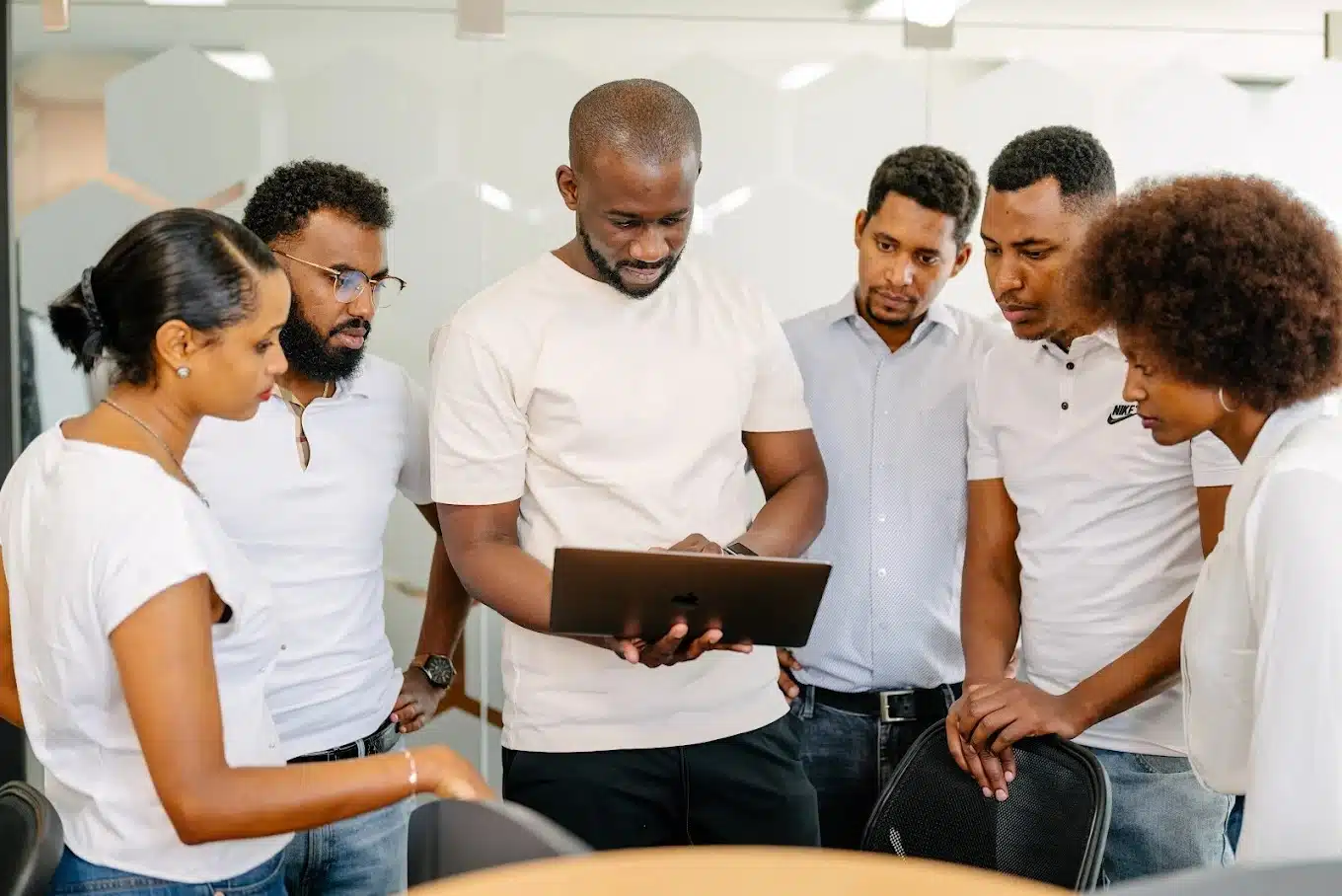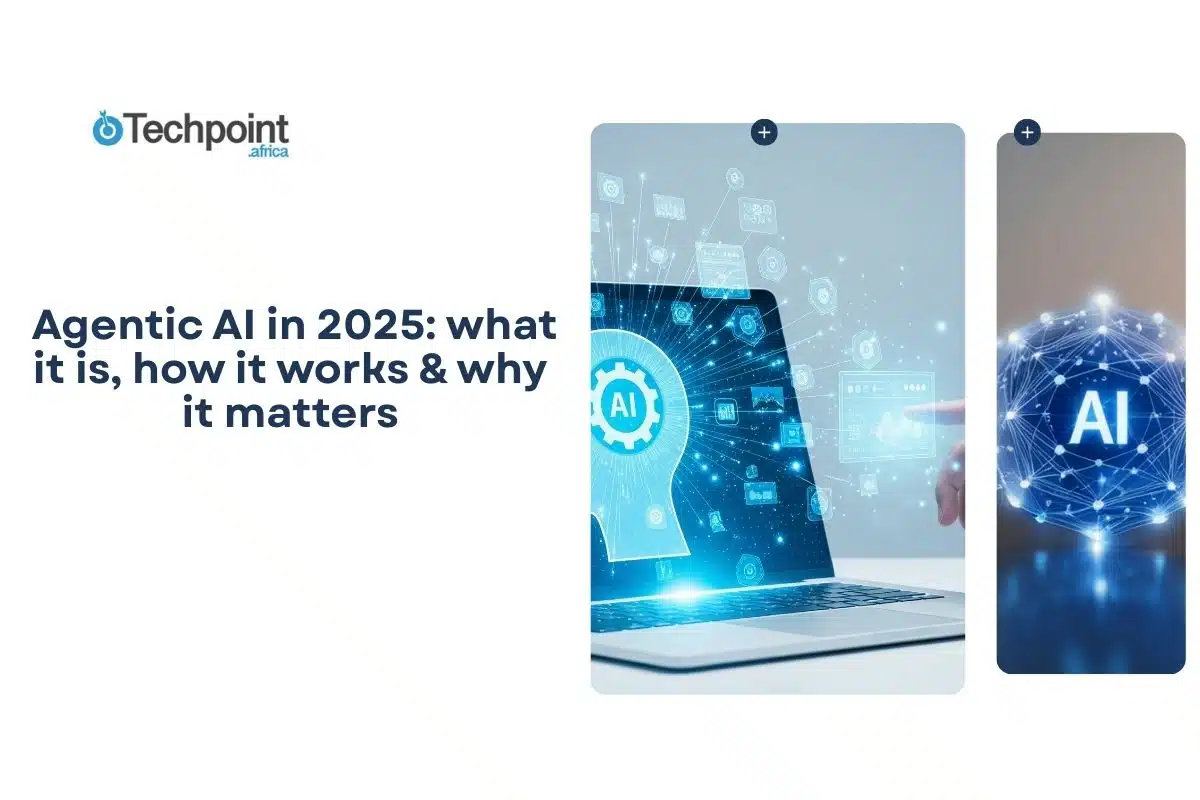Anyone who has followed Nigeria’s new National Artificial Intelligence Strategy (NAIS) closely would find it ambitious and visionary. But one cannot fail to note it is overdue. Since October 2024, over 44 countries have unveiled their national AI strategies to pursue the future and ensure their economies can keep pace with the world’s rapid modernisation. Among the few African countries that have successfully constructed national AI strategies is Nigeria. Inspiring. There is inspiration and power in seeing a developing African country like Nigeria stake a claim in the global AI conversation, not just as consumers, but as creators, regulators, and engineers of innovation. However, as we define what an African AI ecosystem could look like, we must note the big questions:
How do we build AI systems that reflect who we are, not just where the world is going?
Such questions become even more pressing when you compare Nigeria’s draft AI strategy with that of the UK, a country whose immersive tech leadership, layered AI regulation, and global partnerships truly offer a mature but instructive roadmap. This comparison is justifiable when considering that both countries share a cultural bridge through economic partnerships, knowledge exchange, and diasporic links.
It is also justifiable because contrasting economies can, and often compare in certain sectors such as digital technology, an area where developing countries of the world are taking giant leaps to emulate advanced nations. This is why we can compare the UK and Nigeria in the race for a digital future.
Lessons to learn, and how we can localise our ambitions to reflect our indigenous contexts
Nigeria’s draft NAIS is the type of document that shows a bold attempt to move from the margins of the AI conversation into the arena of global digital leadership. According to the policy document, published in August 2024, the country’s vision is:
“…to be a global leader in harnessing the transformative power of AI through responsible, ethical, and inclusive innovation, fostering sustainable development through collaborative efforts.”
The document further explains that Nigeria intends to accomplish this through “better and more inclusive strategies”. Speaking at the launch of the NAIS, Bosun Tijani, Nigeria’s Minister for Communications, Innovation and Digital Economy, commented on the fundamentals of his vision,
“AI by nature, is a tool to support productivity across different sectors, and Nigeria is a country that has always talked about diversification of our economy, so this is a unique opportunity for us to allow a technology that can help us to raise the level of productivity in agriculture, public health, education and many others, to the level that we truly want it to be…”
For many Nigerians, including myself, who have long been navigating the tension between technology, storytelling, education, and policy, the strategy presents a window into the kind of future we could build if we choose to lead with context.
That “context” is where our opportunity lies. Even as Nigeria lays the groundwork for AI infrastructure, skills development, and adoption across sectors, the focus should transcend catching up with global standards. Rather, we could focus on defining what our indigenous AI ecosystem should look and feel like. An ecosystem that reflects our economic aspirations, languages, informal markets, stories, and social complexities. This is an important idea for our development as Africans.

Victoria Fakiya – Senior Writer
Techpoint Digest
Stop struggling to find your tech career path
Discover in-demand tech skills and build a standout portfolio in this FREE 5-day email course
“When we define ourselves, thanks to the expectation…that others are having of us, we are limiting…the complexity of who we are.” — the philosopher Y.V. Mudimbe, during his 1991 conversation with Gurav Desai, on African technological renaissance.
Lessons from the UK
The UK takes and maintains a consciously layered, pro-innovation stance on AI governance, empowering individual sectors such as healthcare, finance, and education to shape their regulatory approaches. Instead of racing to impose sweeping legal frameworks, they have chosen to nurture this new phase of their economic life through flexibility, ethical foresight, and strategic investment. A sector-by-sector model.
This sector-by-sector model gives room for growth, experimentation, and most importantly, contextual relevance. According to Minderoo Center for Technology and Democracy, this strategy would, indeed, “usher in a new era of growth”.
“Developmental ideas can be borrowed from advanced countries,” development historian Aderemi Ojo told me in an interview. “This is a lesson that has repeated itself throughout history, and that’s the good thing about the tech ecosystem of the world. It’s a new frontier in human development, and so can be borrowed, then indigenized… according to the needs of the recipient culture or society.”
This confirms that Nigeria’s policy can benefit from adopting a similar lens of flexibility. For instance, rather than centralising AI regulation through a single agency, we would do well to empower the regulators already embedded in key industries: The National Broadcasting Commission, The Central Bank of Nigeria, The Film and Video Censors Board, to collaborate with technologists, designers, educators, and community stakeholders in defining use-case-specific AI guidelines. In doing so, we will protect what matters most in each sector while encouraging innovation that aligns with our national values.
Another impressive note on the UK’s strategy is its recognition of immersive technology, XR, VR, and volumetric storytelling, not just as entertainment, but as infrastructure. Through programmes like Audience of the Future and StoryFutures Academy, the UK has strategically invested in building immersive labs, regional creative clusters, and public-private research partnerships that bridge culture and technology. Experience design is becoming a core tool for education, cultural preservation, and climate action, and so investing in immersive tech is no longer optional.
This is a huge lesson for Nigeria. A country with one of the most prolific film industries in the world and a rich oral storytelling tradition should not be on the sidelines of immersive innovation. Certainly, we could think of Nollywood as a catalyst for immersive archives, synthetic oral histories, and extended-reality educational tools. We have the stories. We have the urgency. What we need is investment and cross-sector vision.
Perhaps one of the most under-discussed aspects of AI development, and one of the most important as well, is the question of ethics. For Nigeria, ethics cannot be copied from Western contexts. It must reflect our religious diversity, our political sensitivity, our history of misinformation, and our cultural values around privacy, identity, and respect.
We will need advisory councils made up not just of data scientists and policy experts but also traditional leaders, religious scholars, linguists, and artists, people who understand the nuances of what it means to build for a society that is not monolithic. We need ethics models that are fluent in Yoruba, Hausa, and Igbo, that understand the difference between a meme and a misinformation campaign, that know when a voice clone crosses into taboo.
Then there is language
There can be no ethical or equitable AI future in Nigeria that does not include our local languages at the centre. If AI cannot understand Yoruba, Igbo, Hausa, or Pidgin, then it will inevitably exclude millions. It will misinterpret, misrepresent, and ultimately fail. What we need now is a national commitment to building and supporting NLP (natural language processing) tools in our own tongues. This will power voice assistants for farmers, conversational bots for informal traders, and educational tools for students in public schools. Data is not neutral, and we must treat language as the infrastructure of intelligence. It is a necessity.
People, the driving force
One development perspective which economies consider is building human capacity. The UK has also excelled in building accessible pipelines into AI and immersive tech careers. Through bootcamps, apprenticeships, and fellowship programmes, they have found ways to invite not only technologists but artists, musicians, educators, and designers into the innovation conversation.
Nigeria’s 3 Million Technical Talent (3MTT) programme is a great start, but working to expand the programme to include creative AI, generative storytelling, synthetic media, and ethical design is necessary. Nigeria needs to train enough hybrid minds, because the future belongs to those who can code, analyse and imagine.
The background to this is the reality that Nigeria’s economy and identity are informal, polyphonic, and deeply human. According to various sources, including Forbes, the IMF, and the Bank of Industry, over 60 percent of Nigeria’s GDP flows through informal systems: traders, artisans, transport workers, and freelancers.
Our AI systems must be designed with them in mind, not just elite companies or export-ready startups. Imagine what’s possible if AI were trained to help a market woman forecast her best-selling days. Or if public transport operators could optimise their routes using voice-powered AI in Pidgin. Imagine what could happen if we treated the Mile 12 market in Lagos as a viable medium for tech adoption, instead of waiting for it to formalise. In my interview with him, Pete-Cole Onele, tech adoption policy expert and commercial lawyer, said:
“Pidgin English is cool. It’s Nigeria’s most widely used commercial language. The informal sector thrives on it. We should expedite its digital recognition and not get left behind. This is really urgent.”
Even more urgently, we must use AI not simply to disrupt, but to preserve. Our culture, our stories, our rituals, these are relevant datasets. We can use AI to archive our oral histories, reimagine our folklore, and protect endangered knowledge systems. However, we need funding, IP protection, and community consent to do that well.
Nigeria’s draft AI strategy is a starting point, and a strong one. But it cannot succeed unless it learns to speak our languages, mirror our complexity, and prioritise our people. It must be a cultural blueprint that sees creatives not just as end-users, but as co-architects. One that recognises informal workers as innovators. One that treats ethics as dialogue, not compliance.Presently, we have a rare chance to define what African intelligence looks like, and I do not mean just artificial. I mean strategic, ethical, rich and grounded in language and imagination. If we do it well, we will almost certainly define the future.
About the author
Victoria Olajide is a createch strategist and marketing executive, optimistic about Africa’s digital future. Follow her on LinkedIn for more insights: linkedin.com/in/victoriaolajid











